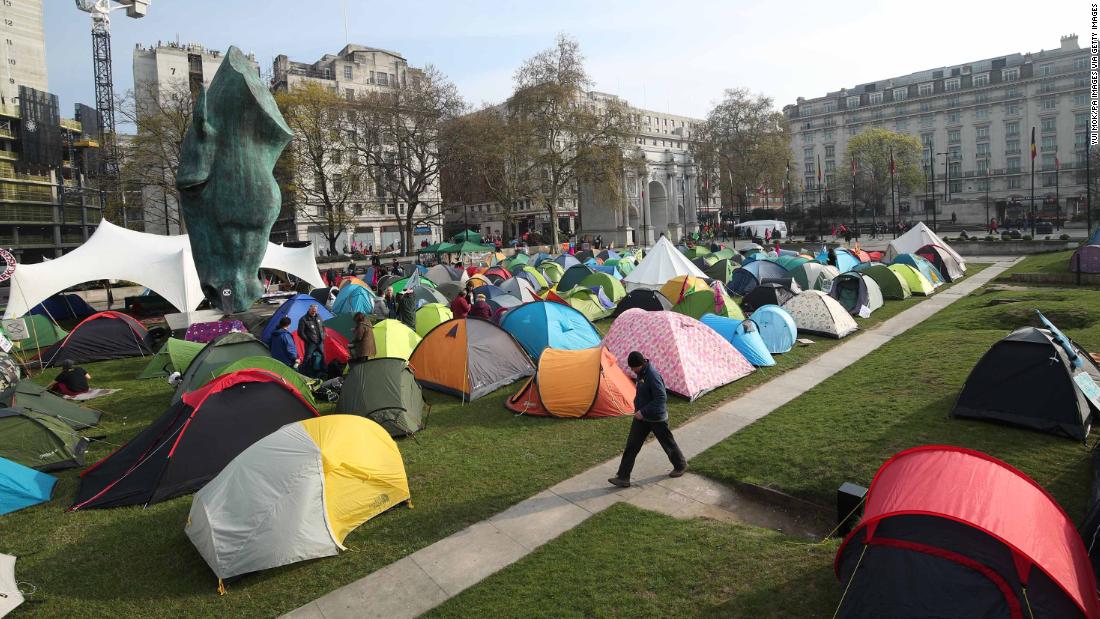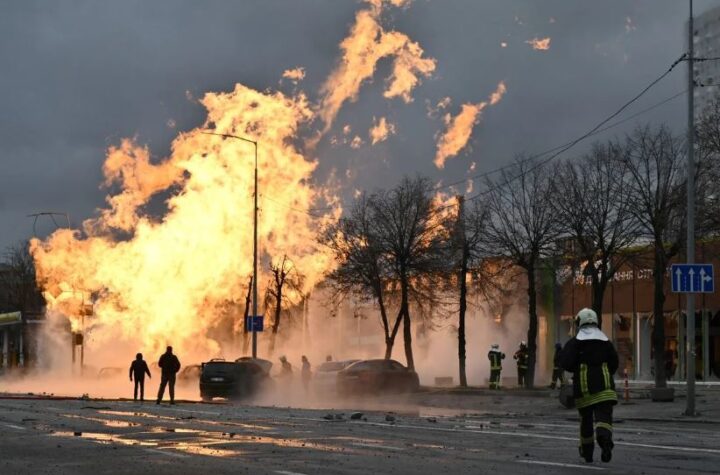
The Extinction Rebellion movement is the current flagship of climate change protest. I applaud their well branded PR campaign which conveys wholly appropriate messages of urgency and relative militancy.
I have serious concerns about their policy platform though, mostly because it doesn’t seem to have one.
The eXtinction Rebellion website contains no discreet policy platform – this being outsourced to a planned ‘Citizens Assembly’ and we aired our concerns about THAT yesterday.
Links to other groups are offered as ‘Further information’ but like eXtinction Rebellion they mostly share a dispiriting inability to distinguish between a wish list and a strategic plan.
This is eXtinction Rebellion’s second demand:
Government must act now to halt biodiversity loss and reduce greenhouse gas emissions to net zero by 2025.
These are but a few of our questions:
eXtinction Rebellion links to the Climate Mobilization website which (wisely) advocates rationing of energy on a scale not scene since WWII – this would inevitably result in the (short term at least) rationing of everything that energy produces, illuminates and transports – how will this rationing be enforced, on whom and by whom?
Averting planetary ecocide will surely require many curtailments of our individual and collective licence for consumerism, private transport, tourism, meat, cheap flights, cruises etc. What will you say to those who will regard this as an intolerable intrusion on their freedom?
Our global economy pivots around the exploitation of nature, raw materials and human labour to facilitate the agency of capital and the licence of the consumer – how can this underlying dynamic be changed?
Who will impose (?) the necessary ‘climate discipline’ onto the citizens of our market society? The Gilets Jaunes protests in France are a massive popular uprising sparked by a relatively modest increase in diesel fuel duty – a measure to tackle climate change. What does eXtinction Rebellion say to the millions of people who fear poverty, unemployment and homelessness as a result of tariffs on fuel and large reductions in consumer driven production?
Ryanair is now among the Top 10 polluters in Europe – will you demand its swift closure as a way of ‘acting now’?
Will eXtinction Rebellion demand an outright ban or a drastic reduction in the production and sale of meat?
Will you demand (in light of exigent circumstances) that McDonald’s, Burger King and KFC are closed?
Will eXtinction Rebellion demand a ban on the development and deployment of new i-phones and other consumer electronics?
Does eXtinction Rebellion seriously believe that a People’s Assembly gathered by Sortition is up to dealing with these questions? Will you allow politicians, pressure groups and multi-national corporations to lobby the assembly – or exclude them?
The Real Politik of climate change is extraordinarily difficult – bereft of a discreet policy platform, the current ‘rebellion’ risks being seen as an adolescent fantasy; one that basks in the publicity of protest but dumps the responsibility for policy, hard choices, legislation, enforcement and practical action elsewhere.
Outsourcing policy decisions to ‘government’ via a People’s Assembly, negates the need for exactly the kind of hierarchy that eXtinction Rebellion seems conspicuously and vociferously against.
I am told that local groups are autonomous, that decisions about actions are similarly local and based on the real time consensus on the ground. There is value in autonomy, spontaneity, flexibility and consensus but it precludes central co-ordination of any efficacy and crucially the development of a coherent policy platform.
I strongly suspect this rejection of hierarchy is why eXtinction Rebellion has no discreet policy platform – no person or group within the movement wants to be explicitly identified as ‘in charge’ so demands for ‘action’ and ‘change’ are necessarily vague.
While I remain a keen supporter of eXtinction Rebellion and wish them God Speed – I am concerned that the organisation appears naive in what few policies it has and resistant to the kind of organisational maturity that might facilitate better ones.
I was also a keen supporter of the Occupy movement – but it too lacked organisational maturity and a credible policy platform…and where are they now?





Thanks for a thoughtful and thought provoking piece.I too am very concerned that eXtincion Rebellion will go the of occupy and quickly drain away into the sands of time.
I have to say that I find the ‘global warming’ fallacy a pernicious scam – now typified by this ‘Extinction Rebellion’ nonsense – and I wonder if you’ve had time to look under the hood and/or to warn your networks.
Essentially, ‘Global Warming’ was changed to ‘Climate Change’ in 1997 when temperatures began to fall. From the outset, the entire idea has been a fiction perpetrated by Maurice Strong with The Club of Rome, Al Gore et al in tow and slanted continually by the mainstream media.
This scam is examined in summaries below – while weather warfare is one major issue that, largely ignored by the main stream, should be understood as part of the geo-engineering that is the real elephant in a room filled with lies and obfuscation (to say nothing of transhumanism). The simplest fact is that 96% of our atmosphere is water vapour; with only 4% of the remaining 4% being CO2. Vitally, CO2 is essential to all ‘vegetable/plant’ life on the planet, with the vast majority coming from natural sources. In effect, the real extinction is being caused deliberately, as outlined below:
Tim Ball: The Evidence Proves That CO2 is Not a Greenhouse Gas
https://www.technocracy.news/tim-ball-the-evidence-proves-that-co2-is-not-a-greenhouse-gas/
http://drtimball.ca/
”Climate Science” Steve Goreham
https://www.youtube.com/watch?v=mtHreJbr2WM
A wonderfully straightforward presentation of how ‘Climate Change’ is, and always has been, dominated by natural factors
http://www.stevegoreham.com/
SPACE WEATHER & AGENDA 21 – YouTube
https://www.youtube.com/watch?time_continue=632&v=UHIqycFgCBc
Project Cloverleaf
Here’s a brief overview from an incredibly well-researched book about the real threat to humankind:
Under an Ionized Sky: From Chemtrails to Space Fence Lockdown
The fact appears that the lower atmosphere is being transformed into a controllable, artificially-engineered, ‘particulate plasma’ – using chemtrails. This is allied with the ‘HAARP Strings’ heating of the ionosphere above to create a standing wave between the ionosphere and troposphere (strings with the ends fixed in the ionosphere).
By this means, low frequency (ELF) signals can be radiated around the planet creating a virtual antenna for C4 military ops – command-control-communication-cyberwarfare – a space-fence infrastructure.
The objective is to enable weather, population and biological modification (transhumanism), hurricanes, earthquakes etc. under the guise of global warming/climate change – on the one hand – and advanced directed-energy weaponry/space fence technology – inc. absolute surveillance using A.I. – on the other.
All under the highly-compartmentalised and classified jurisdiction of military and intelligence agencies in ‘Project Cloverleaf’…magik of the darker variety indeed.
Al Gore Just Can’t Escape His Loopy Scientific Ignorance
https://www.technocracy.news/tim-ball-al-gore-just-cant-escape-his-loopy-scientific-ignorance/
You have taken time to put this together and I recognise that you sincerely believe in the links you have provided. All I can say as respectfully as possible is that all of the people and ideas you have signposted are widely discredited and that a veritable avalanche of peer reviewed scientific study forms an overwhelming consensus about the reality of man made climate change. I urge you respectfully, to look again at the institutions, scientists and data that confirm the reality of the danger we are now all facing.